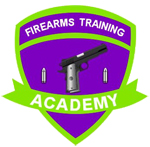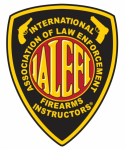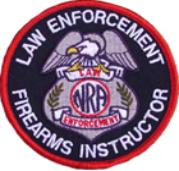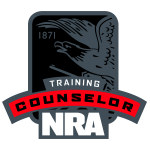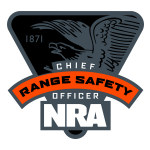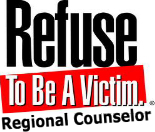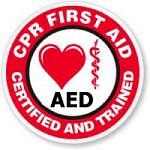Choose your Firearms Instructor Wisely!
 With the recent surge of firearms sales after Sandy Hook & San Bernardino etc, we have also seen a huge influx of new firearms instructors and training academies. But buyer beware, not all instructors or so called academies are created equal and some can actually get you hurt or even get you in trouble with the law.
With the recent surge of firearms sales after Sandy Hook & San Bernardino etc, we have also seen a huge influx of new firearms instructors and training academies. But buyer beware, not all instructors or so called academies are created equal and some can actually get you hurt or even get you in trouble with the law.
So what does someone who wants to learn about firearms need to look for in an instructor?
The first thing you need to determine is what kind of training you want to seek out. Are you looking to hunt, or is home defense your focus, is it personal protection or competitive shooting, are you looking for an instructor or a coach or just a simple firearm safety class? All valid questions you need to ask yourself. Although the coaching side of competition shooting is more of a 1 one 1 endeavor, you still need to look at some very important aspects before you start taking classes or hire a coach. Some of them are listed below, if I have missed any don't be afraid contact us and I'll add them in.
1. SAFETY - Obviously the number #1 concern is safety in classroom and on the range. Does the instructor allow live ammo in class? Do they use dummy ammunition for practical handling exercises. How many instructors to each student that are actually shooting... 1 to 2 students is usually an acceptable ratio especially with beginning shooters.
2. INSURANCE - Do they have liability insurance that covers them and you if something should happen. There have been many nightmares stories about instructors shooting themselves or even students in the classroom.
http://www.foxnews.com/us/2014/08/04/police-firearms-instructor-shoots-himself-in-hand-during-lesson/
http://www.dispatch.com/content/stories/public/2013/08/12/concealed-carry-accidental-shooting.html
3. QUALIFICATIONS - Boy I see this one all the time. They take one or two classes in Basic Pistol, Home Firearm Safety etc and go off creating their own courses in Carbine, Shotgun etc. Check the qualifications of the instructor and insure they a certified and qualified to teach the classes you want to take. If you see NRA Basic Pistol Instructor and no other qualifications that might be a big red flag. A quality firearms instructor is going to be trying to better himself/herself and taking more than one or 2 classes. Check their qualifications carefully, the more training from different sources the better, if they fail to list their qualifications you can bet there is a reason. A good firearms trainer is always taking classes and continuing their education. Also remember that someone who is ex-military even an ex-military trainer is not qualified to train civilians in firearms since it is two different worlds. Military training is offensive in nature but in the civilian world it is defensive training. Civilians using military tactics will get you in trouble really fast with the law if not dead.
4. TESTIMONIALS & REVIEWS - Some of the best referrals come from satisfied customers so check their website, Facebook page or Google reviews for testimonials or even ask them if there are any former students you can talk to. Facebook company pages have reviews turned on by default so if the company has turned them off there is usually a reason, and it's not usually a good sign. Google and Yelp is also a great resource to check for honest company reviews.
 5. TEACHING STYLE - What kind of instructor are they, as they all have their own teaching style, some get off track easily, some over teach and some under teach. Most firearms classes are objective based which means all students should have that particular lesson down before the instructor moves on to the next lesson. Does the Instructor make sure of this, does he encourage questions be asked at any time, does he ask you if you have any questions. Does he make the class fun, does he stay on topic ~ man, I have seen instructors where at the end of the day you actually know more about the instructor then you do about what you came to learn.
5. TEACHING STYLE - What kind of instructor are they, as they all have their own teaching style, some get off track easily, some over teach and some under teach. Most firearms classes are objective based which means all students should have that particular lesson down before the instructor moves on to the next lesson. Does the Instructor make sure of this, does he encourage questions be asked at any time, does he ask you if you have any questions. Does he make the class fun, does he stay on topic ~ man, I have seen instructors where at the end of the day you actually know more about the instructor then you do about what you came to learn.
6. TEACHING EXPERIENCE - Knowledge does not make an instructor! What I mean by this is that just having the knowledge doesn't mean you can teach - this kind of goes with teaching style but it expands it to how long has he been teaching, how often does he teach.. does he do 2 - 3 classes a month, or 2-3 classes a year. How long has he/she been teaching 1 year, 2, 5, 10? Doesn't hurt to ask.
7. REAL EXPERIENCE - What kind of real-world experience does your instructor have. Do they teach combat shooting and/or tactical techniques, do they have a background in the military or law enforcement that would lend to their credibility. Do they practice what they teach, for example if they teach about concealed carry, do they actually carry concealed all the time? Believe me, I know very popular trainers that teach this stuff and never carry a gun themselves.... how can you teach something you don't believe in yourself. (You know who you are!). Again, I want to caution you about the combat focus and gimmick trainers.... Take the training you are going to use in the real world... this is the stuff you need and the stuff you should practice on a regular basis becuase it takes a lot of training to be proficient in that alone. If you do this, it just may save your life and that is why your taking the training in first place, isn't it? Trust me when I say that you won't be clearing rooms, busting down doors, going roll-over prone under cars or shooting through windshields any time soon or ever, unless you're a law enforcement officer or deployed to Afghanistan. So stay focused and stay away from the gimmicks and tacticool stuff and focus on the training that will actually save your life.
8. NATIONAL ORGANIZATIONS - Look for classes that are backed and certified by national organizations such as the National Rifle Association or the Second Amendment Foundation Training Division etc - as these classes tend to be safer in nature and geared more to the beginning shooter with building block classes they naturally flow from one to the other and these classes have been checked and doubled checked by trainers and attorneys. Home grown classes developed by inexperience instructors are a law suit just waiting to happen. I'm not saying that all are but many I have seen just makes me cringed.
Both the National Rifle Association and the SAF Training Division (SAFTD) offers insurance to their certified instructors. The NRA currently has roughly 125,000 instructors, many of them not active and many that are certified to teach only 1 or 2 courses. The SAF Training Division (SAFTD) has an hierarchy of accountability to manage their instructors and have set the bar quite a bit higher than the NRA. With the NRA you can be a certified instructor with as little as 1 to 2 days of training. The minimum requirement with SAF Training Division is 5 days plus insurance and first aid training is required.
Now, I'm not saying training from organizations like SIG Sauer Academy, Thunder Ranch, Front Site etc is bad training, but my experience has been that the instructor pool is much smaller to devote to course development and there aren't as many standards that need to be met. By this I mean you can take a class from SIG Sauer Academy (about 30 minutes from me) and take the same class from a different instructor and it won't even look like the same class. Now to be fair I have heard they are getting much better with this. But also remember the same applies to these instructors as does all the others... Just because it has national name recognition, doesn't mean it's a class that fits in with what you need or want for training or that the instructor is anymore qualified than anyone else - check their background also. You really also have to look at the organizations as a whole and what their primary focus is... civilian, military or law enforcement.
9. COST - We all want the best bang for our buck (see what I did there?), but let's face it for many there is little pie at the end of the month for training, so we need to seek out the best training for a reasonable cost. That training needs to fit into your goals of what you want to accomplish with your training. Doing a little research upfront is not only a good idea but it will also save you valuable time and money. Taking the wrong training, from the wrong trainer can be very frustrating and discourage you from not seeking out further training. This is sad (insert sad face here), as quality training can and has saved many lives.
 10. FIRST AID TRAINING - None of us like to think that something could go horribly wrong and we get hurt in a class. I'm not trying to scare you and I must say that range accidents are actually very rare, but they do happen. This is another area that a good instructor understands and takes steps for, this means they have taken the time to get certified in Emergency First Aid, CPR and AED. Remember that anything can happen on the range, not just gun shot wounds but heart attacks, strokes, broken ankles, bee stings etc... it's nice to know that the instructor is ready for anything and actually has a plan to deal with emergencies of any kind.
10. FIRST AID TRAINING - None of us like to think that something could go horribly wrong and we get hurt in a class. I'm not trying to scare you and I must say that range accidents are actually very rare, but they do happen. This is another area that a good instructor understands and takes steps for, this means they have taken the time to get certified in Emergency First Aid, CPR and AED. Remember that anything can happen on the range, not just gun shot wounds but heart attacks, strokes, broken ankles, bee stings etc... it's nice to know that the instructor is ready for anything and actually has a plan to deal with emergencies of any kind.
11. PROFESSIONALISM - There are a lot of good trainers out there and as stated before, they all have different styles, but being unprofessional is not a style. I have taken classes that where actually good classes but the language coming out of the instructor's mouth would have made sailor blush. I have also taken classes where things have gone wrong, no not in that way, I mean just little things like audio problems, weather, generators that don't start, people showing up late, etc, etc where the instructor's stress certainly was known to all in the class. Believe me you don't want to sit through a stressful class, it's no fun. So again look for an instructor that is professional and can handle the little things as well as the big things. A good instructor should be able to over come all setbacks in a class with ease and not show stress in the process or pass that stress on to the class trust me it's not a fun day.
12. THE LAW - One of the big reasons people take firearms classes is to know and understand the law. This is vital since not knowing the law can and will have you wearing an orange jump suit in no time. You have to know what you can and what you can't do with that firearm be it a long gun or a handgun. This is especially important when you are going in to other states, carrying on a regular basis or traveling with your firearm - there is a lot to know. Your instructor should know this and/or bring in an attorney or a State approved instructor that does.
 13. DIVERSITY - Another important aspect is diversity of your instructor. As you may soon learn when you start taking classes is that a firearm is a tool of last resort and you can only use that tool when your life is threatened with death or grave bodily injury. On top of that is the fact that many situations that require you to protect yourself, happens in a split second and many times you cannot get to that gun to protect yourself, so you have to know how to use other tools and techniques. Prevention is also the best way to stay alive since avoiding a gun fight in the first place is the best way to win a gun fight. So you also need to know situational awareness, avoidance and deescalation techniques and much more. Does your instructor know this is kind of stuff or offer other classes such as pepper-spray classes, situational awareness, some hand to hand techniques. Remember your gun is a tool of last resort so you cannot always go straight for that gun, there many things you need to know and understand legally and escalation of force is not something you want to learn by trial and error.
13. DIVERSITY - Another important aspect is diversity of your instructor. As you may soon learn when you start taking classes is that a firearm is a tool of last resort and you can only use that tool when your life is threatened with death or grave bodily injury. On top of that is the fact that many situations that require you to protect yourself, happens in a split second and many times you cannot get to that gun to protect yourself, so you have to know how to use other tools and techniques. Prevention is also the best way to stay alive since avoiding a gun fight in the first place is the best way to win a gun fight. So you also need to know situational awareness, avoidance and deescalation techniques and much more. Does your instructor know this is kind of stuff or offer other classes such as pepper-spray classes, situational awareness, some hand to hand techniques. Remember your gun is a tool of last resort so you cannot always go straight for that gun, there many things you need to know and understand legally and escalation of force is not something you want to learn by trial and error.
